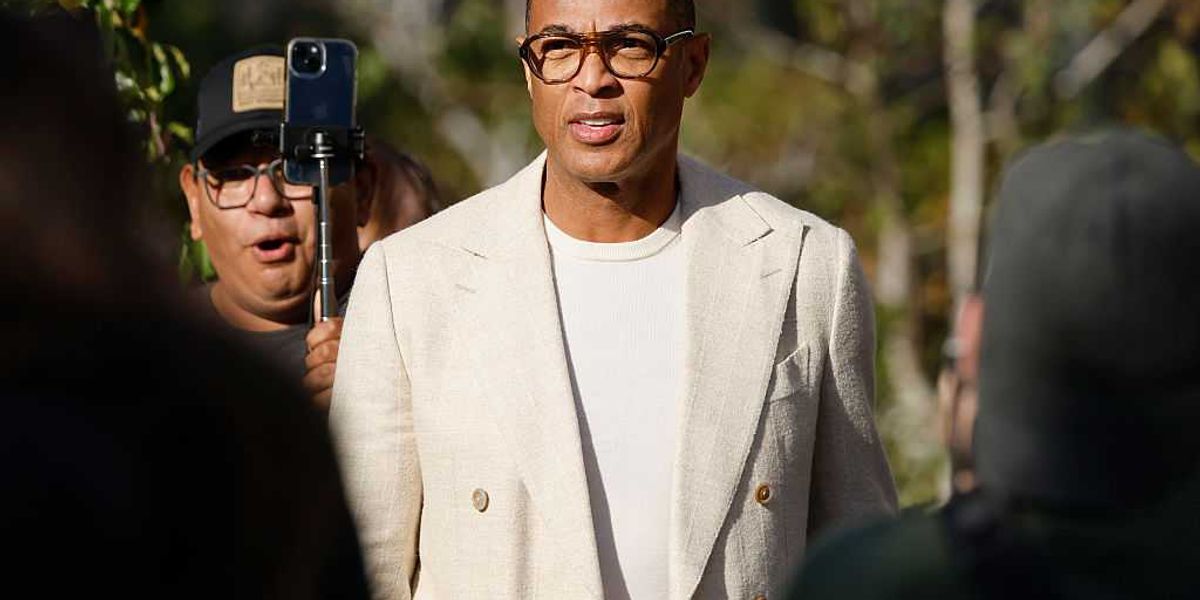For the last several weeks, Hot Air has been kindly posting my articles on the Anti-Communist Film Festival. I’m planning the festival for the fall of 2026.
As things stand now, we are taking donations and have been approached by a foundation and several potential sponsors. Two theater locations in the Washington, D.C. area are available. Depending on how everything shakes out, the festival will be anywhere from a weekend to a week. We will have it all nailed down by the end of 2025.
One of the things that is crucial for the festival is that young people attend. Communism is often treated as an academic topic, which often puts it out of reach of high school and even college students. Some of these young people are growing up in broken or difficult homes, which leads them to look for a “totalizing solution” to their sadness. That solution is often socialism. Groups from Soviet communist to the East German Stasi preyed on the fatherless, offering them “understanding” and support. In short, they brainwashed them.
The team “totalizing solution” in reference to communism comes from Whittaker Chambers, the great writer and ant-communist I wrote about recently on Hot Air. As I noted, Chambers, whose autobiography Witness is a classic, was a communist who left the party in the late 1930s and exposed communist activity in the United States government.
What gets less talked about is how Chambers’ home life led to his misery, which in turn led him to search out an all-encompassing answer to life’s questions. His story is reflective of so many young people, even in 2025, who turn to Antifa and socialism to alleviate their personal pain. We want these people at the Anti=Communist Film Festival.
Chambers was born Jay Vivian Chambers on April 1, 1901 – April Fool’s Day. From an early age, Chambers’s life was one of sadness and alienation. His father, Jay, was an illustrator. Chambers’s mother Laha was a failed actress who came to New York from Milwaukee to work in her parents’ diner. She met Jay at the diner, where he was a customer, and the two were married in January 1900. Jay Vivian Chambers, their first son, was born the following April. (Jay would change his name to Whitaker). He was followed by another son, Richard, in 1903. After Richard’s birth the family moved from Brooklyn to Lynbrook, a then-undeveloped town on Long Island.
From the beginning, Chambers knew that his family was “peculiar.” Jay Chambers was distant from the family, both emotionally and physically. He was bisexual. Jay would often stay behind at his job at a design studio in Union Square, leaving Laha and the boys to wait at the front door in vain for his arrival. Then one night, he stopped coming home altogether. Jay had always been more of an urbanite than Laha, and he preferred living in Brooklyn, where he could enjoy the company of other men. Despite this, Laha tried to maintain middle-class respectability in Lynbrook. She overextended lines of credit with local merchants.
With Jay gone, Vivian and Richard slept on cots in their mother’s room. At night, Vivian would listen to the pounding of the nearby Atlantic Ocean. “It seemed about to pound away the land,” he would later recall. It was the sound of inhuman force, the first I knew.”
Chambers attended Columbia University in 1920. While there, he was dazzled by professor Mark Van Doren, who was considered one of the greatest teachers in the history of the school. Chambers decided that “the literary life is the best in the world and that to be a poet is among the highest callings known to man.” At Columbia, he studied the works of Tolstoy, Dostoevsky, Ibsen, Chekhov and Strindberg, among others .Chambers got involved in literary activities on campus, writing for magazines and joining Boar’s Head, a literary society.
In March 1922, Chambers published a story, “The Damned Fool,” in the campus literary magazine The Morningside. It was widely praised on campus. At the end of his sophomore year in 1922, Chambers was named the editor of The Morningside. As Chambers biographer Sam Tanenhaus has noted, 1922 was the year that two avant-garde works that were considered scandalous, James Joyce’s Ulysses and T.S. Eliot’s “The Waste Land.” Inspired by these modernists, Chambers and his editors at The Morningside decided to make Chambers’s first issue a “profanist” issue. In an editorial note, Chambers explained, “Profanism, its adherents tell us, derives from the Latin ‘pro fano,’ outside the temple….The Profanist dares to look at life unhesitatingly and dares to represent it without the veils.”
In the issue, Chambers, writing under the pseudonym John Kelly, offered a work called “A Play for Puppets.” It was dedicated to the Antichrist. The play depicted two soldiers in front of Christ’s tomb. They talk to each other about different things, including women’s breasts. Christ then appears dressed in a kimono and, with dreariness and seeming reluctance, tells the guards, “Roll back the stone.” He then comes forth, only to exit the stage saying, “I am the truth, the way, and the light.”
Tannenhaus describes it this way: “No one saw the complete picture: that Chambers was less a blasphemer than a tormented doubter, hungry for a sustaining faith.” This describes many of the young communists wrecking American cities today. Leftism is a religion.
The Profanist issue of The Morningside caused an uproar, both on campus and beyond. Both faculty and students called for Chambers’s resignation. Both the New York Times and the Saturday Evening Post reported on the controversy. The Dean ordered Chambers to collect all the distributed issues of The Morningside; Chambers refused. Chambers stopped going to classes. Instead, he sat in his room reading books all day. But the pressure was getting to him. When a friend brought Chambers some whiskey, he got drunk and “tore the place apart.”
In January, Chambers left Columbia. He decided to go abroad and travelled to Europe with two friends, Meyer Shapiro and Henry Zolinsky. Shapiro would go on to become a Marxist art critic. Chambers was in Germany in 1923. He saw the devastation from World War I, and this hardened his perception that the Western World was broken and beyond repair. Outside his room window he heard communists marching and chanting:
Schmier die Guillotine, schmier die Guillotine, schmier die Guillotine
Mit Tyrannenfett
Blut muss fliessen, Blut muss fliessen, Blut Blut Blut
Grease the guillotine…with the fat of tyrants.
Blood must flow…blood, blood, blood.
Chambers returned home to more problems with his personal life. He had discovered his father’s secret of bisexuality, and had come to realize that he himself was attracted to men. Chambers returned to Columbia, but by December, he had stopped going to class. Then Chamber’s brother Richard committed suicide. Shattered, Chambers looked for a “totalizing solution” to fix the world.
In a secondhand bookstore on Fourth Avenue, he found a fifty-cent copy of a speech that Lenin had given, The Soviets at Work. “This was not theory or statistics,” Chambers wrote. “This was the thing itself.” As Sam Tanenhaus notes:
Studied under the lamp of Leninism, things at last fell into place. Chambers could examine himself, Jay, Laha, Richard and see their failures not as aberrations but as symptoms of a wider malady. What was his family if not a textbook example of the eclipsed middle class, of families who had lost their way in the twentieth century?….With its cracks and fissures 228 Earle Avenue was the heartbreak house of a doomed world. Aflame with this new knowledge, Chambers alternated between exaltation and despair. At night, back from the library, unable to sleep, he tramped for miles, “brooding over my family, which seemed to represent in miniature the whole crisis of the middle class.”
Whittaker Chambers left communism for two reasons: the show trials and mass murders under Stalin made it more and more difficult to defend communism, and he, Chambers, had children. In 1937, Chambers’s friend Mayer Shapiro had shown him transcripts of the Moscow show trials, and Chambers was appalled at how rigged the proceedings were. Chambers’s faith in communism began to fully unravel when he had children, in violation of party rules. One day, he watched his baby daughter Ellen eating at the breakfast table. Chambers began to focus on the young girl’s ear:
The thought passed through my mind: “No, those ears were not created by any chance coming together of atoms in nature (the Communist view). They could have been created only by immense design.” The thought was involuntary and unwanted. I crowded it out of my mind. But I never wholly forgot it or the occasion. I had to crowd it out of my mind. If I had completed it, I should have had to say: Design presupposes God. I did not then know that, at that moment, the finger of God was first laid upon my forehead.
Chambers left the party. His personal story is as important in understanding the left as any academic theory.
Note: You can contribute support for the festival by donating at the GoFundMe page for the project.
Editor’s note: We now have the room to run commentary by some of our favorite and most provocative thinkers on the Right. That only happens because of the support of our readers, who ensure that we have the resources to keep providing an independent platform and independent voices in a sea of Protection Racket Media domination.
Help us maintain that fight! Join Hot Air VIP and use promo code FIGHT to get 60% off your membership.
Read the full article here









![CNN Just Ruined Their Day with These Numbers [WATCH] CNN Just Ruined Their Day with These Numbers [WATCH]](https://www.lifezette.com/wp-content/uploads/2025/12/2025.12.19-08.39-lifezette-69450f58a6e2d.jpg)

